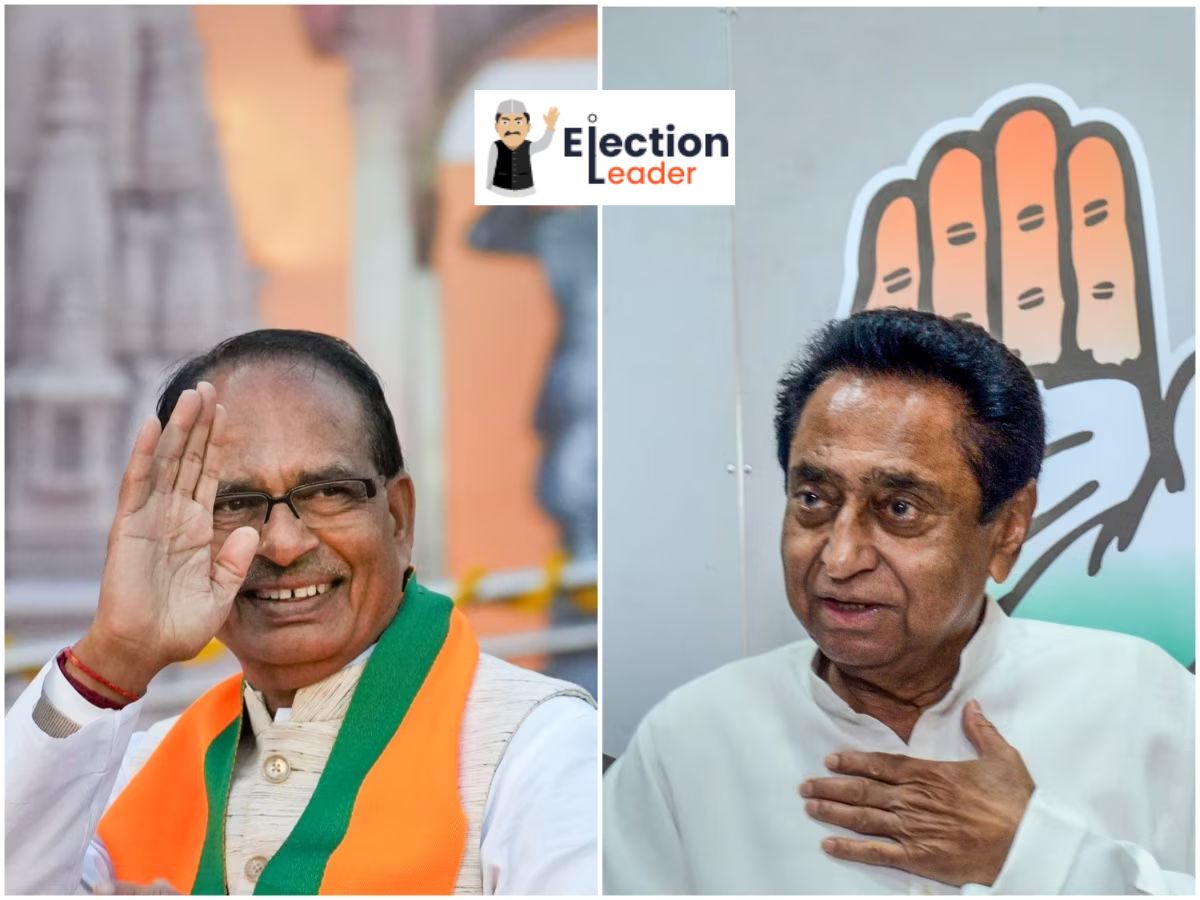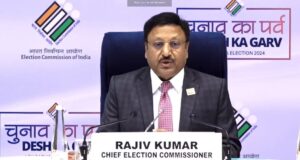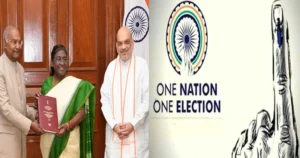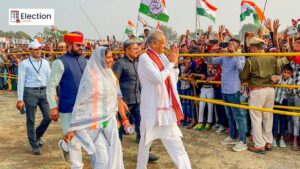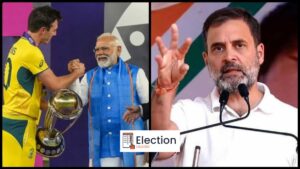Table of Contents
ToggleIntroduction
The Bharatiya Janata Party (BJP) and the Indian National Congress have one of the longest-lasting rivalries in Indian politics, which is generally marked by fierce conflict between the country’s major political parties.

This competition has had a major impact on Madhya Pradesh’s political future and has played out there. We will examine the historical background, the present political climate, and the major concerns that characterize the continuing conflict between the Congress vs BJP in Madhya Pradesh.
Historical Context
Taking a step back and looking at the past of the Congress vs BJP in Madhya Pradesh is crucial to understanding the state’s current political dynamics.
Congress in Madhya Pradesh
Madhya Pradesh has a long history with the Indian National Congress, sometimes known as the Congress. After independence, the state—which had previously been a part of Berar and the Central Provinces during British rule—became a prominent political force. Congress became the preeminent political movement in the region during the early years of India’s independence.
Important turning points in the history of the Congress Party in Madhya Pradesh include the establishment of the state’s first Congress administration in 1957, which resulted from the first state assembly elections. This was the first step towards Congress’s long-term control over the political system in Madhya Pradesh.
In Madhya Pradesh, the Congress Party has produced a number of strong leaders who have been essential to the political development of the state, including Arjun Singh, Digvijaya Singh, and Kamal Nath.
Even though Congress has a long history, it has not been without difficulties, such as internal discord and opposition from other political parties. These elements have played a part in a number of elections where the BJP and other parties have fought for state control.
BJP in Madhya Pradesh
The political wing of the Rashtriya Swayamsevak Sangh (RSS), the Bharatiya Janata Party (BJP), started out as a somewhat insignificant movement in Madhya Pradesh. The BJP’s predecessor, the Jana Sangh, set the groundwork for the party’s expansion throughout the state.
The establishment of the Janata Party government in Madhya Pradesh in 1977 was one of the most important turning points in the BJP’s ascent.
The Jana Sangh, an earlier incarnation of the BJP, was part of this alliance, which was the party’s first step into the political system in the state. The BJP put forth a lot of effort in the ensuing years to broaden its support base and subvert the Congress Party’s hegemony.
The BJP used Madhya Pradesh as a test bed for its pro-development and Hindutva ideologies. Leaders like Sunderlal Patwa and Uma Bharti, who were instrumental in bolstering the BJP’s standing in the state, were supported by the party.
The 2003 state assembly elections demonstrated the BJP’s sustained rise as it secured a resounding mandate and the chief ministership for its leader, Uma Bharti. The fact that the BJP won an absolute majority in the state for the first time made this triumph a historic turning point.
BJP vs Congress in Madhya Pradesh
The rivalry between the Congress vs BJP in Madhya Pradesh is a manifestation of their larger national conflict as well as a struggle for political dominance.
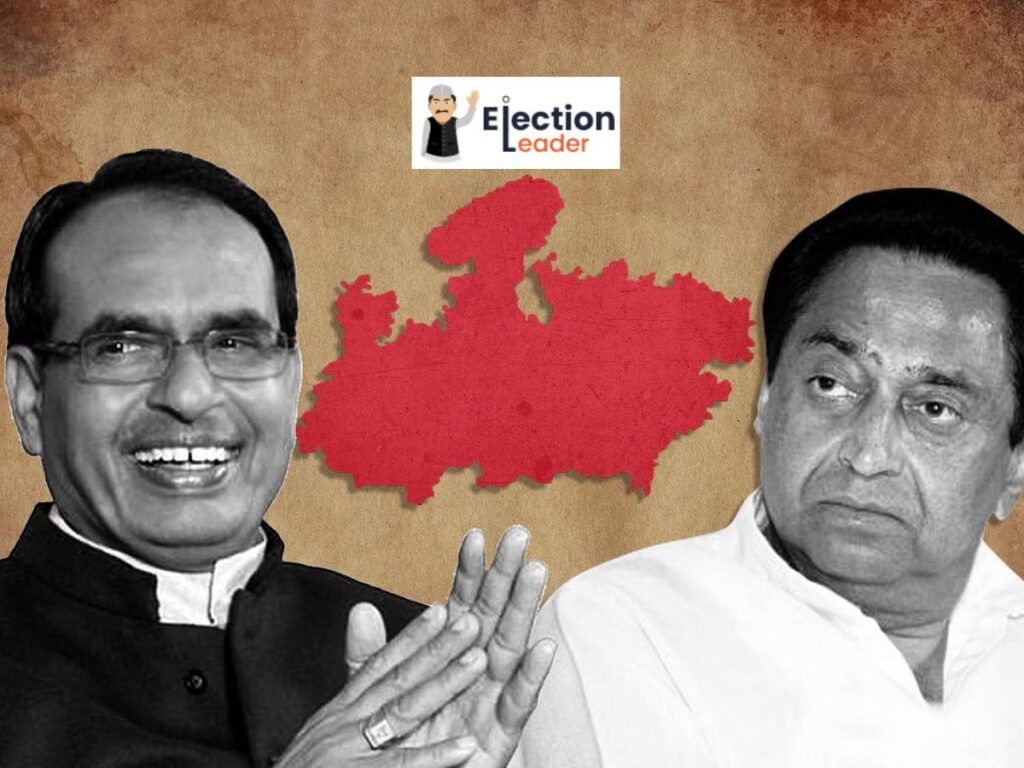
Recognizing the state’s political importance, both parties have made significant investments there, and the elections have frequently resulted in hotly contested outcomes.
Elections in Madhya Pradesh
Madhya Pradesh Elections have been unpredictable, with the Congress vs BJP trading positions throughout the years. Assembly Elections are normally held every five years in the state, and past elections have frequently been close races.
The 2018 Madhya Pradesh Legislative Assembly election is one of the most notable elections in recent memory. With 114 seats in the 230-member assembly, the Congress emerged triumphant, while the BJP gained 109 seats. Nonetheless, the BJP came dangerously close to forming the government because of its robust presence in rural areas and a split opposition in some areas.
The political drama in Madhya Pradesh was heightened by the Congress’s close victory margin, the parties’ intense campaigning, and their post-election coalition with other regional parties. Ultimately, the 15-year BJP dominance in Madhya Pradesh came to an end when Congress politician Kamal Nath took the oath of office as the state’s chief minister.
Key Issues in the Congress vs BJP Battle in Madhya Pradesh
Development vs. Welfare: The debate over development and welfare is one of the main fronts in Madhya Pradesh. The Congress party advocates its social welfare programs, especially those that tackle problems like poverty and unemployment, whereas the BJP frequently highlights its policies and infrastructure projects that support development.
Agrarian Concerns: The elections are very important to the state’s agrarian population. The problems of farmers, particularly those pertaining to crop pricing, loan waivers, and irrigation infrastructure, have been endeavored upon by both sides.
Caste and Community Politics: Madhya Pradesh has a strong caste and community politics system, much like many other Indian states. Due to the fact that both parties have tailored their platforms to appeal to various castes, voter mobilization and coalition building are intricate processes.
Leadership and Local Factors: Election results are frequently greatly influenced by the parties’ leadership and the standing of their leaders in state and local government. Influential people in the state include Kamal Nath of the Congress and Shivraj Singh Chouhan of the BJP.
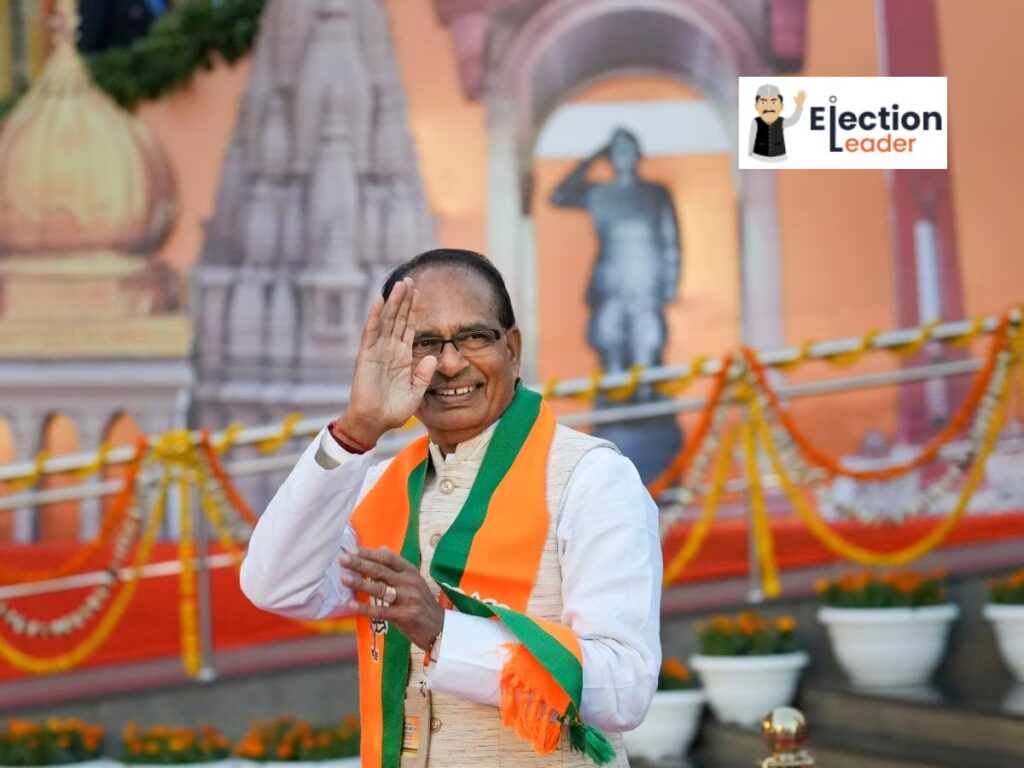
Infrastructure Development: Building roads, energy, and water supplies, as well as developing the state’s economy, are important concerns. As part of their election manifestos, political parties pledge to enhance these areas.
Law and Order: Maintaining law and order and tackling criminal justice concerns, especially those involving crimes against women, are significant factors influencing the state’s voter base.
Current Political Landscape
As of September 2021, when I last updated my understanding, Madhya Pradesh’s political climate is unstable and constantly shifting. In charge was the Congress Party, which Chief Minister Kamal Nath headed. But the BJP, under the leadership of the late Chief Minister Shivraj Singh Chouhan, continued to be a potent force in opposition.
Please be aware that things might have changed since then, therefore in order to obtain a true picture of the state of politics now, it’s critical to review the most recent political developments in Madhya Pradesh.
Conclusion
In Madhya Pradesh, the Congress vs BJP competition remains one of the most watched political contests in India. Given that both parties are major actors in the national arena, their battle for domination in this state in central India is a microcosm of the greater conflict over power in the nation.
With both parties fighting for control, Madhya Pradesh’s political future will probably remain unpredictable due to shifting public opinion. In the next years, it will be interesting to see how this struggle for political supremacy plays out and how it affects the growth and administration of the state.
People also ask
Which party is strong in Madhya Pradesh?
Obviously, the Bhartiya Janta Party is more strong than any other political party. Development is seen everywhere in Madhya Pradesh.
Is there a BJP government in Madhya Pradesh?
Result. Shivraj Singh Chouhan, the Chief Minister of Madhya Pradesh representing the Bharatiya Janata Party, formed a new government. All of these constituencies had to have by-elections because of these resignations. November 2020 saw the holding of the Madhya Pradesh Legislative Assembly by-elections.
What is the vote share between Congress and BJP?
According to the latest figures, the Congress vote share is 43.2% while the BJP has managed 36%.
What is the difference between Congress and BJP?
Compared to Congress, the BJP takes a more aggressive and nationalistic position on defense policy and terrorism.

